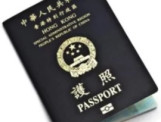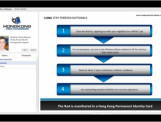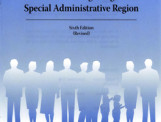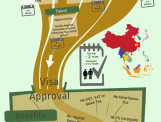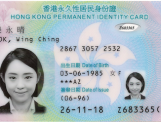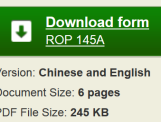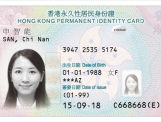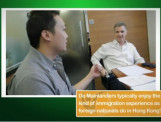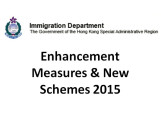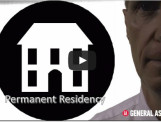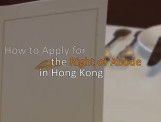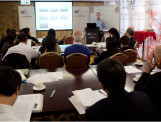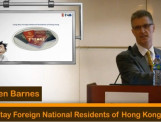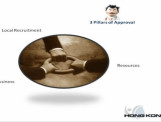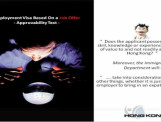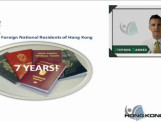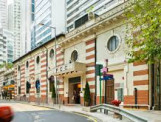
What Can be Said to Constitute ‘Ordinary Residence’ for the Purposes of a Hong Kong Right of Abode Application?
Posted by The Visa Geeza / in Long Stay & PR, Your Question Answered / 24 responses
This post was first published on December 9, 2012.
The question of what constitutes ‘ordinary residence’ in the determination of a Hong Kong right of abode application for a 7 year foreign national resident, can, ultimately, only be settled by the Court. The Hong Kong Immigration Department have their own means of assessing whether an applicant has been ordinarily resident here and if they deem you not to be so ordinarily resident (due to the pattern of your life) then you first appeal to the Registration of Persons Tribunal and thereafter, if still not persuaded, it means an application to the Court for a determination based on the actual facts.
QUESTION
Dear Visa Geeza,
I moved to Hong Kong from Canada in August 2008 to work for a relatively large company in Hong Kong, part of a overseas publicly listed group. Your website, by the way, is unbelievably detailed and a great resource. I only wish I had come across it a few years ago.
My question is with regard to being eligible for the Right of Abode 7 years later.
I moved to Hong Kong in August of 2008, having spent about 10/11 years living and working in Canada. I hold a British passport (full citizen) though I was born in Rhodesia and schooled there till I was 21, and then went abroad to do postgraduate study and never returned back although my parents and the rest of extended family live there.
My child was born in Hong Kong in late 2009.
From about May 2010 my employment required me to travel overseas regularly and actually required me to spend a lot of time abroad in Western Europe and the US for new product design and development which is a crucial part of my role.
As this role required me to be abroad for a long time, I ‘moved’ my wife and child to the UK rather than have them to live alone in Hong Kong while I worked abroad in the UK, the USA and Europe for months. We stopped renting our place in Hong Kong when we went to the UK in May 2010.
We left all of our stuff stored with some very close friends and a cousin who moved here a few years ago – either stored or they use until we come back.
In the meantime I am still employed by my employer in Hong Kong and I pay the requisite income taxes here in Hong Kong.
My wife, child and I still update and maintain all our HK visa documents allowing us to live in HK. Both of them have maintained their dependant visa status, continuously, since temporarily moving to UK.
I am not able to refuse my company’s requirement that I am flexible and can work abroad and I like my work, but I also want to stay in Hong Kong permanently for the long term.
We both still have our bank accounts, credit cards in Hong Kong.
I have been in Hong Kong usually for about 65 to 80 days a year since I have been based temporarily abroad.
When I am in Hong Kong I either stay with my close friends, cousin or if I am unable to stay with them, I rent a serviced apartment for the time I am here.
I anticipate that this situation will continue for at least another 3 odd years before we can be back in Hong Kong, and I have been promoted to a higher position which does not involve so much travel.
I am pretty confident that my employers would be able to document that I am required to be abroad for long periods of time for work purposes and whatever else that is necessary to explain.
I wonder if you can help to guide me as to whether my future application for Right of Abode based on the above would stand any chance of being successful.
After having read your site, I think there may be problems on obtaining HK PR, pertaining to my situation – that is really depressing as I really want to live and settle down in Hong Kong.
Would you be able to help or guide me in any way?
Case Law Dealing with ‘Ordinary Residence’
Inland Revenue Commissioner v. Levene [1928] AC 217
At page 243 Lord Sumner said:
“….. the word ‘ordinarily’ may be taken first. The Act on the one hand does not say ‘usually’ or ‘most of the time’ or ‘exclusively’ or ‘principally’ nor does it say on the other hand ‘occasionally’ or ‘exceptionally’ or ‘now and then’, though in various sections it applies the word resident, with a full sense of choice, adverbs like ‘temporarily’ and ‘actually’. I think the converse to ‘ordinarily’ is ‘extraordinarily’ and that part of the regular order of a man’s life adopted for voluntarily and for settled purposes is not extraordinary.”
The governing authority on the meaning of ‘ordinary resident’ is:
R. v. Barnet LBC ex parte Shah [1983] 2 AC 309 a decision of the House of Lords
In this case decided under the Education Act, Lord Scarman held that the natural and ordinary meaning of the words ‘ordinary resident’ has been authoratively determined by the House of Lords in two tax cases, namely:
Inland Revenue Commissioner v. Levene [1928] AC 217 and IRC v. Lysaght [1928] AC 234
In Lau San Ching v. Liu, Apollonia [1995] 5 HKPLR 23 Cheung J extracted the following principles from the judgment of Lord Scarman in R. v. Barnet LBC ex parte Shah (discussed in pages 30~31):
“(1) Ordinary Resident is not a term of art in English law (p340).
(2) In their natural and ordinary meaning the words ‘ordinarily resident’ mean ‘that the person must be habitually and normally resident here, apart from temporary or occasional absences of long or short duration’. The significance of the adverb ‘habitually’ is that it recalls two necessary features mentioned by Viscount Sumner in Lysaght, namely residence adopted voluntarily and for settled purpose (p342).
(3) The decision in each of the decided cases depended on its own facts and such dicta as can be culled from the reported judgments must be read with that in mind (p342)
(4) A person could be ordinarily resident in two countries at the same time. This is a significant feature of the word’s ordinary meaning for it is an important factor distinguishing ordinary residence from domicile (p342)
(5) Unless it can be shown that the statutory framework or the legal context in which the words are used required a different meaning, ‘ordinary resident’ refers to a man’s abode in a particular place or country which he has adopted voluntarily and for settled purposes as part of the regular order of his life for the time being, whether of short or long duration. (p343).
(6) One exception is that if a man’s presence in a particular place or country is unlawful, eg in breach of the immigration laws, he cannot rely on his unlawful residence as constituting ordinary residence. (p343)
(7) There are two, and no more than two, respects in which the mind of the person is important in determining ordinary residence. The residence must be voluntarily adopted. Enforced presence by reason of kidnapping or imprisonment, or a Robinson Crusoe existence on a desert island with no opportunity of escape, may be so overwhelming a factor as to negative the view to be where one is.
There must be a degree of settled purpose. The purpose may be one or several. It may be specific or general. It is not necessary that the person intends to stay where he is indefinitely. The purpose, while settled, may be for a limited period. Education, business, profession, employment, health, family or merely love of the place are common reasons for a choice of regular abode. All that is necessary is that the purpose of living where he does has a sufficient degree of continuity to be properly described as settled (p344).
(8) The legal advantage of adopting the natural and ordinary is that it results in the proof of ordinary residence which is ultimately a question of fact depending more upon the evidence or matters susceptible of objective proof than upon evidence as to state of mind. If there can be proved a regular, habitual mode of life in a particular place, the continuity of which has persisted despite temporary absences, ordinary residence is established, provided only that it is adopted voluntarily and for a settled purpose (p344).
(9) The ‘real home’ test is wholly inconsistent with the natural and ordinary meaning of the words as construed by the House of Lords in the two tax cases, it is an unhappy echo of domicile.
This test was further discussed in:
Shanghai Land Holdings Ltd (In Receivership) v. Chau Ching Ngai (unreported) HCA 2704/2003 [2005] HKCU 317 Decided 25 February 2005 (at paragraph 13)
Hon Wuang J.
“…Ordinarily resident’ I believe both sides have agreed is to be given its ordinary and natural meaning… That passage [of Lord Sumner] in Inland Revenue Commissioner v. Levene [1928] AC 217 at page 243 quoted supra] was relied upon by Madam Justice Kwan in the case of In Re Kok Hui Pan, ex parte Wing Lung Bank Ltd [2002] 3 HKLRD 20 as well as by the very full judgment of Mr Justice Cheung in an unreported judgment of Lau San Ching v. Liu on January 19, 2005 in the case of HCMP 3215/1994. What I perhaps should emphasize by a reading of Lord Sumner’s judgment as well as what Madam Justice Kwan and Mr Justice Cheung have said in their separate judgments is that emphasis is not only on resident, but on the other word ‘ordinarily’. My emphasis is particularly on these key words : ‘regular order of a man’s life’, ‘adopted’, ‘voluntarily, ‘for settled purposes’. It is by reference to those criteria that we therefore must look to see whether having regard to the evidence before this court, Mr Chau was ordinarily resident. I think it made very little difference whether the applicable time for the test of ordinary residence in Hong Kong is at the time of the writ or now.”
More Related Stuff
Strategy on how to craft an argument to appeal a refused Hong Kong right of abode application
Will the 2 years I spent studying in China break my continuous residence for the Hong Kong right of abode?
Hong Kong right of abode – when does the clock start ticking?
I have lived in Hong Kong for 5 years – can I extend my work visa for 2 years, quit my job, study full time then apply for the right of abode?
10 Must Have resources for a successful Hong Kong right of abode application
| PODCAST ANSWER |
Podcast: Play in new window























